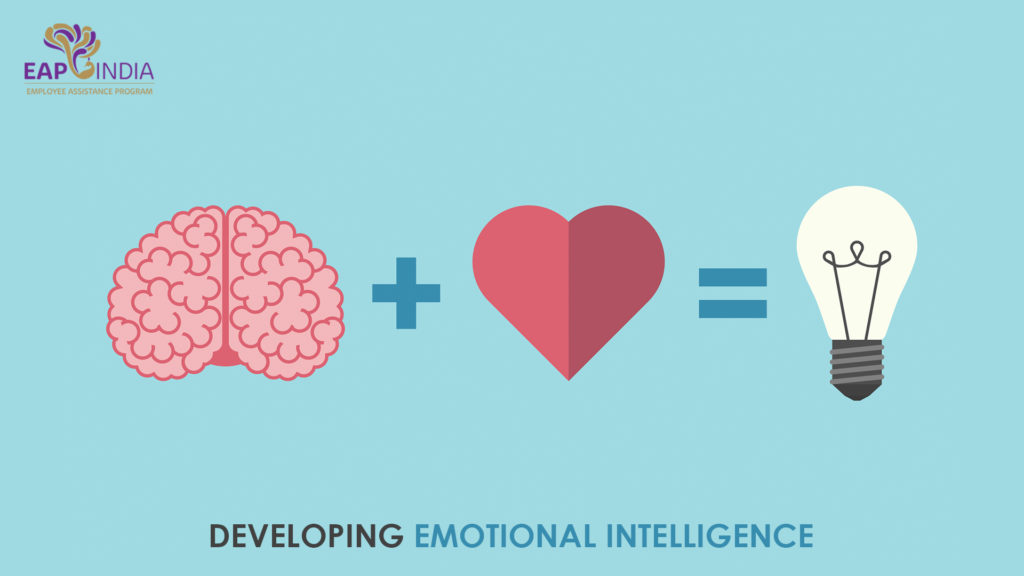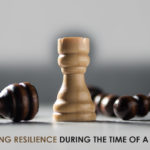John Mayer and Peter Salovey termed Emotional Intelligence as:
“An emotionally intelligent person is skilled in four areas: identifying emotions, using emotions, understanding emotions and regulating emotions.”
5 Components of Emotional Intelligence
- Self-Awareness: When we’re self-aware, we know our strengths and weaknesses, as well as how we react to situations and people.
- Self-Regulation: Because they are self-aware, emotionally intelligent people can regulate their emotions and keep them in check as necessary.
- Internal or Intrinsic Motivation: People with high emotional intelligence tend to be highly motivated as well, which makes them more resilient and optimistic.
- Empathy: People with empathy and compassion are simply better at connecting with other people.
- Social Skills: The social skills of emotionally intelligent people show they genuinely care for and respect others and they get along well with them.
Research suggests that emotional intelligence is linked to higher job satisfaction and strongly associated with job performance.
How To Develop Emotional Intelligence Skills?
- Work On Self-Awareness: One of the important skills in being emotionally intelligent is being self-aware. Emotionally intelligent people are aware of their as well as others’ emotions and body language and use that information to improve their communication skills. Emotionally intelligent people have an awareness of the moods of those around them and always guard their attitude accordingly.
- Build Awareness On Your Emotional Triggers: Each of us have our own sets of strengths and weaknesses. To be able to identify those and work on the strengths is the first step in building self-awareness. Think about your own emotions and how you react to negative situations when it comes to your workplace. When you are typically more aware of your emotions and reactions, you can control them. Taking criticism in a positive way to be able to understand how you come across in emotionally charged situations is important while working on improving your self-awareness on your emotions.
- Reframe Your Perceptions On Self-Management: Self-management means taking responsibility for your own behavior and well-being as well as controlling your emotional outbursts. Practice different stress management tactics to augment your self-management. Make a schedule to improve your productivity and to not procrastinate on your important tasks. Pay attention to your health and well-being, be sure to eat a proper meal, drink enough water and exercise to feel positive. An important factor in managing yourself and your emotions is to consciously taking out time to be interested in any subject matter, whether it is related to business or personal.
- Be Approachable & Sociable: Social skills refer to the skills needed to handle and influence other people’s emotions effectively. Being social covers a wide range of abilities, like communication and conflict resolution to dealing with change, meeting new people to building relationships and maintaining old relationships. A good way to put your social skills to test is to go out and network with people. Non-verbal communication, i.e., body language, tone, pitch of voice and eye contact are the key in letting others know how you feel emotionally.
- Acknowledge & Celebrate Your Positive Emotions: While practicing self-awareness and self-regulation, remember to always acknowledge your emotions, positive and negative. Celebrate your emotions. People who experience positive emotions are generally more resilient and more likely to have fulfilling relationships, which will help them move past adversity.
Conclusion
Developing the emotional intelligence allows one to navigate effectively in high-pressure situations and employees who can adapt easily in different work situations or roles tend to feel more satisfied with their work too. Being emotionally intelligent is not only valuable for your job but also an important aspect of one’s character to be able to deal calmly with personal emotional issues.
“When awareness is brought to an emotion, power is brought to your life.”
– Tara Meyer Robson




